Hailing from Shaoguan, Guangdong, the Tang Dynasty (618-907) official and poet Zhang Jiuling has “returned home”!
From March 22 to 23, the newly adapted Cantonese opera Zhang Jiuling will grace the stage at the Shaoguan Theater, reigniting discussions about this historical figure.
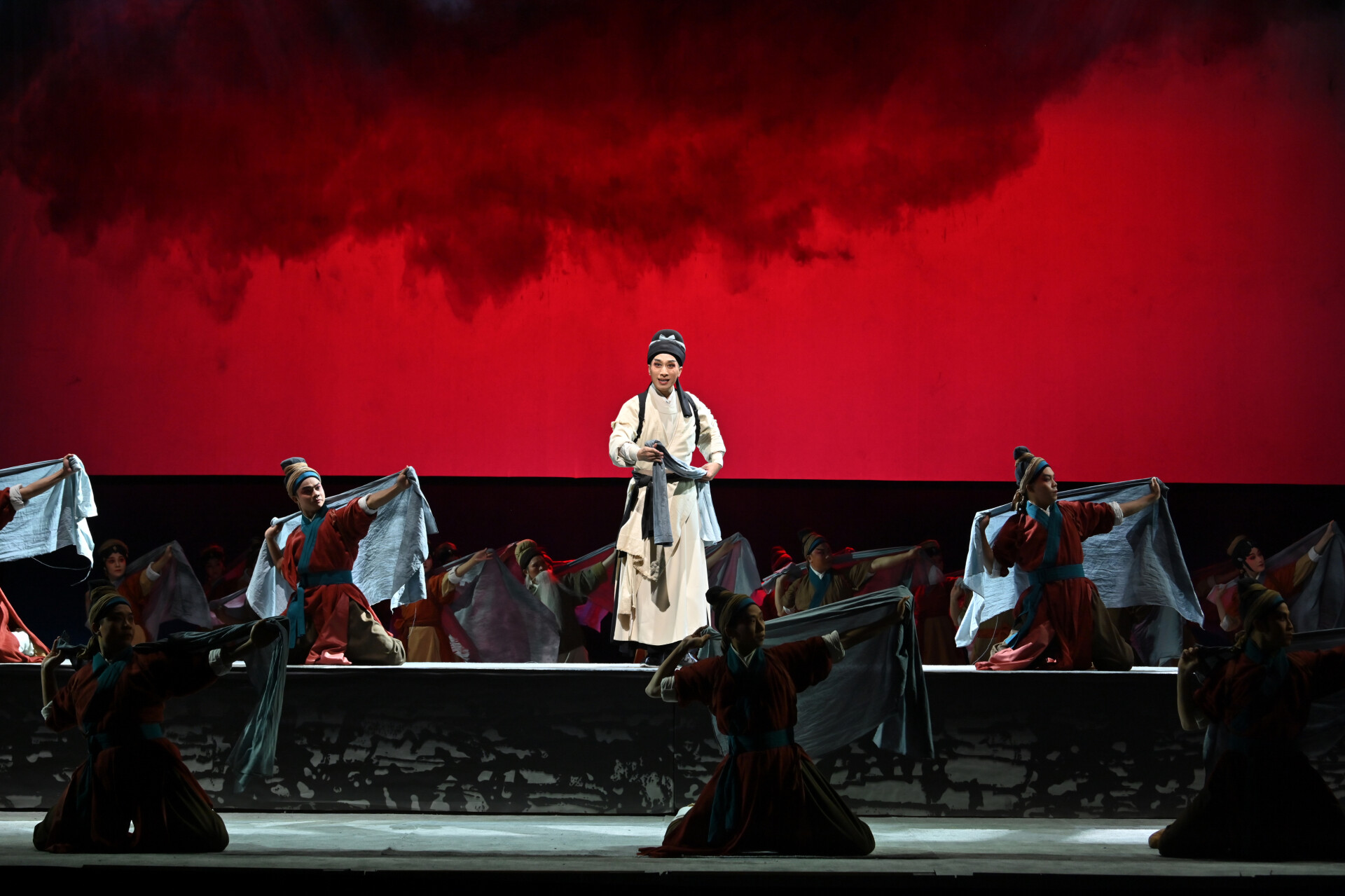
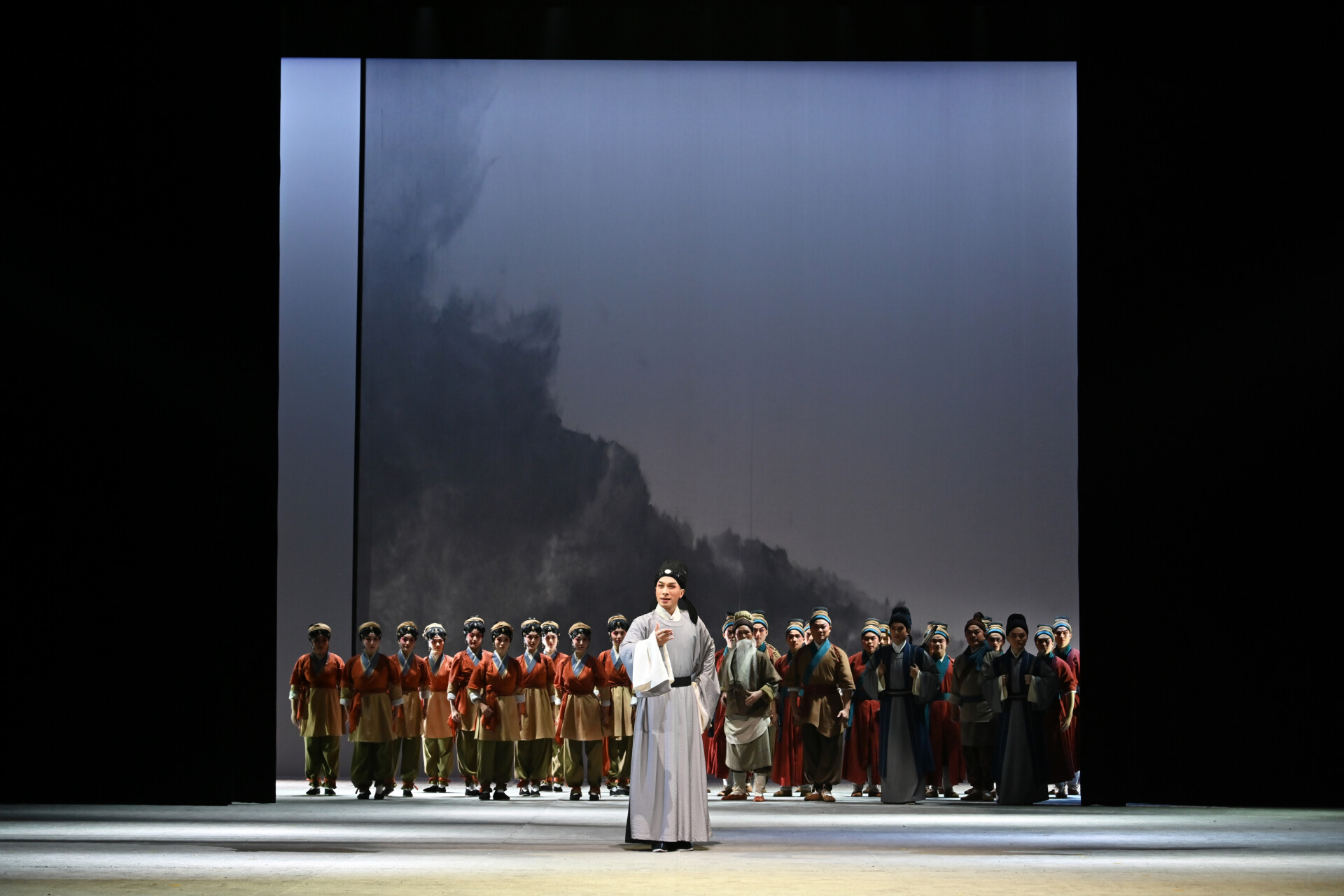
Stage photo of Cantonese opera Zhang Jiuling (Photo provided to GDToday)
Zhang Jiuling, the first grand chancellor in the Lingnan area, was born in the flourishing Tang Dynasty era, a time when the Maritime Silk Road witnessed unprecedented prosperity. The reconstruction of the ancient Dayu Mountains route under his oversight not only connected the maritime and overland Silk Roads but also symbolized a fusion of cultures. Let’s join experts and scholars in literature and history as they interpret Zhang Jiuling’s life from the perspective of the Maritime Silk Road.
Poetry of the prosperous Maritime Silk Road in the Tang Dynasty
The Maritime Silk Road was established during the Qin and Han dynasties, reaching its pinnacle during the Tang Dynasty. A maritime trade bureau was set up in Guangzhou during the Tang Dynasty, establishing an institutional framework for foreign trade and diplomacy.
The Maritime Silk Road also inspired countless poetic masterpieces during the Tang Dynasty. Complete Tang Poems (or Quan Tangshi), the largest collection of Tang poetry, contains 281 poems with the word “sea” in the title, including 105 directly related to the ocean, with thousands more mentioning maritime elements. For instance, the lines from Zhang Jiuling’s Looking at the Moon and Longing for One Far Away (望月怀远), “Over the sea grows the moon bright; We gaze on it far, far apart,” is a widely cherished verse.
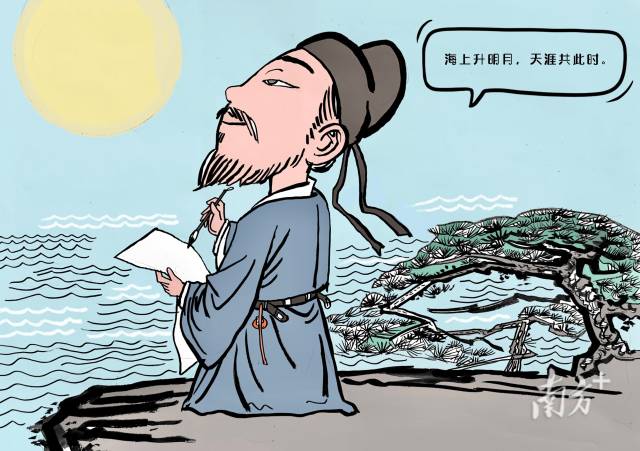
(Photo: Nanfang Daily)
Among Tang poems with titles including the word “sea,” “Nanhai” (South China Sea) appears most frequently, prominently featuring Guangzhou.
“It is evident that the Tang Dynasty not only produced ‘frontier poems’ depicting the desolate northern borders but also ‘border-sea poems’ reflecting maritime customs and scenes, which possessed a unique charm and constituted a significant category of Tang maritime literature,” remarked Li Qingxin, president of the Chinese Society for Maritime History Studies.
In addition, the “sea” serves as a key to unraveling the legendary life of Zhang Jiuling. Born in Qujiang County, Shaozhou (present-day Shaoguan), Zhang Jiuling was good at writing. At the age of 13, he proposed himself to the governor of Guangzhou, Wang Fangqing, with a letter, thus gaining fame throughout Lingnan.
During that time, Guangzhou boasted the world’s longest oceanic trade route of the medieval era, known as the “Guangzhou-Haiyi Route.” Along this route, ships could sail from Guangzhou to the Persian Gulf and Northeast Africa. The Nanhai God Temple became a vital stop for both domestic and foreign merchants entering and leaving Guangzhou.
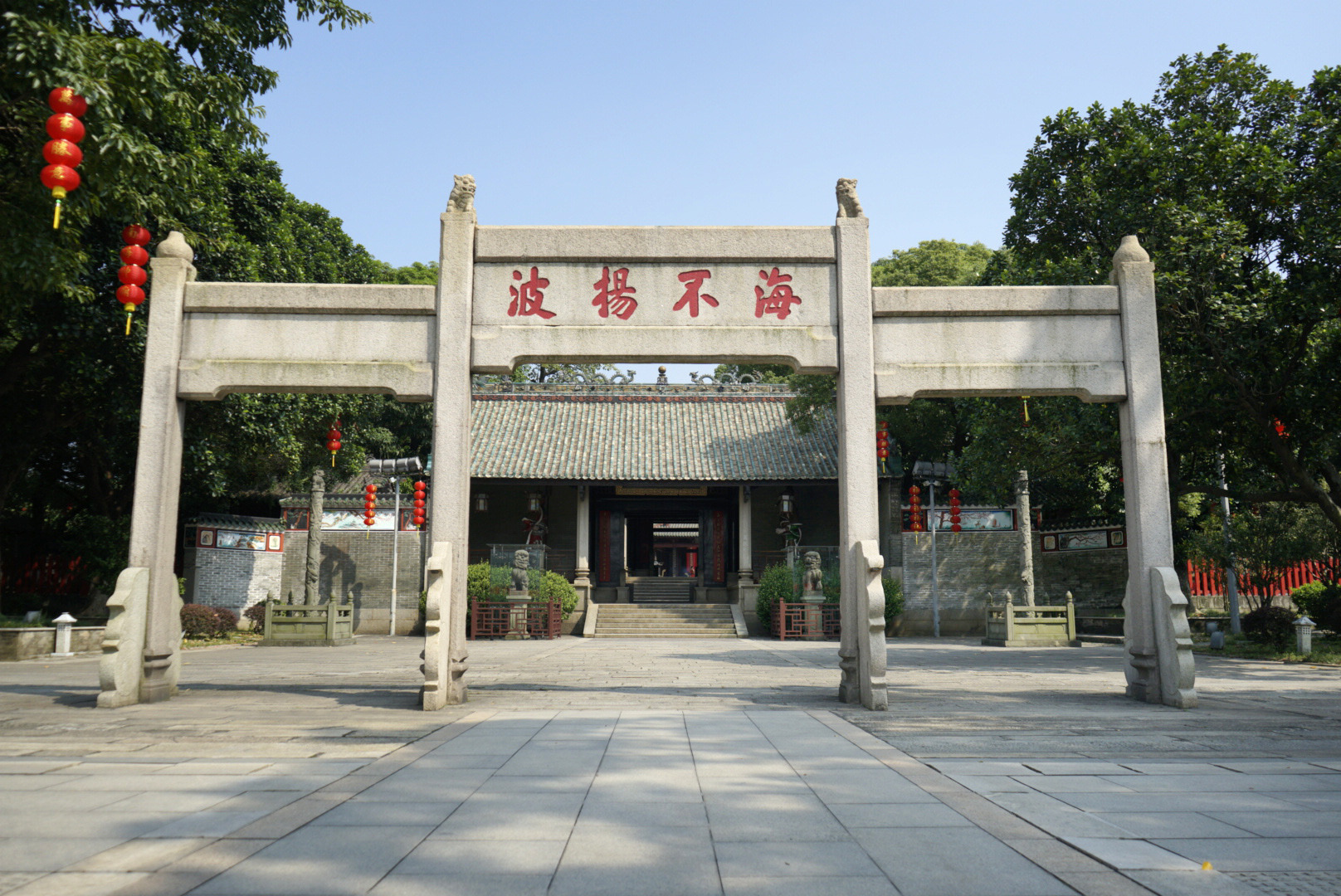
Nanhai Temple (Photo: Nanfang Daily)
As the Maritime Silk Road flourished, the worship of the Nanhai God grew. In 726, facing a prolonged drought, Zhang Jiuling, then a Junior Minister of Rites, was tasked with offering sacrifices at the Nanhai God Temple, marking the first instance of an imperial envoy being dispatched to perform rites at the temple.
Moreover, in 751, the emperor bestowed the title of “Guangli King” upon the Nanhai God, symbolizing “attracting prosperity and wealth in the world,” with Zhang Jiuling’s brother, Zhang Jiuzhang, assuming the role of chief officiant.
Xiang Qun, associate professor of the History Department at Sun Yat-sen University, explained that as the Nanhai trade circle thrived in the Tang Dynasty, the elements of commodity trade continued to expand, and the actions of Zhang Jiuling and others in offering sacrifices at the Nanhai God Temple demonstrated the state’s emphasis on and adjustment of the maritime trade management system.
Today, the Nanhai God Temple still houses a stele inscribed with Zhang Jiuling’s poem Looking at the Moon and Longing for One Far Away, allowing visitors to experience the charm of the Tang Dynasty.
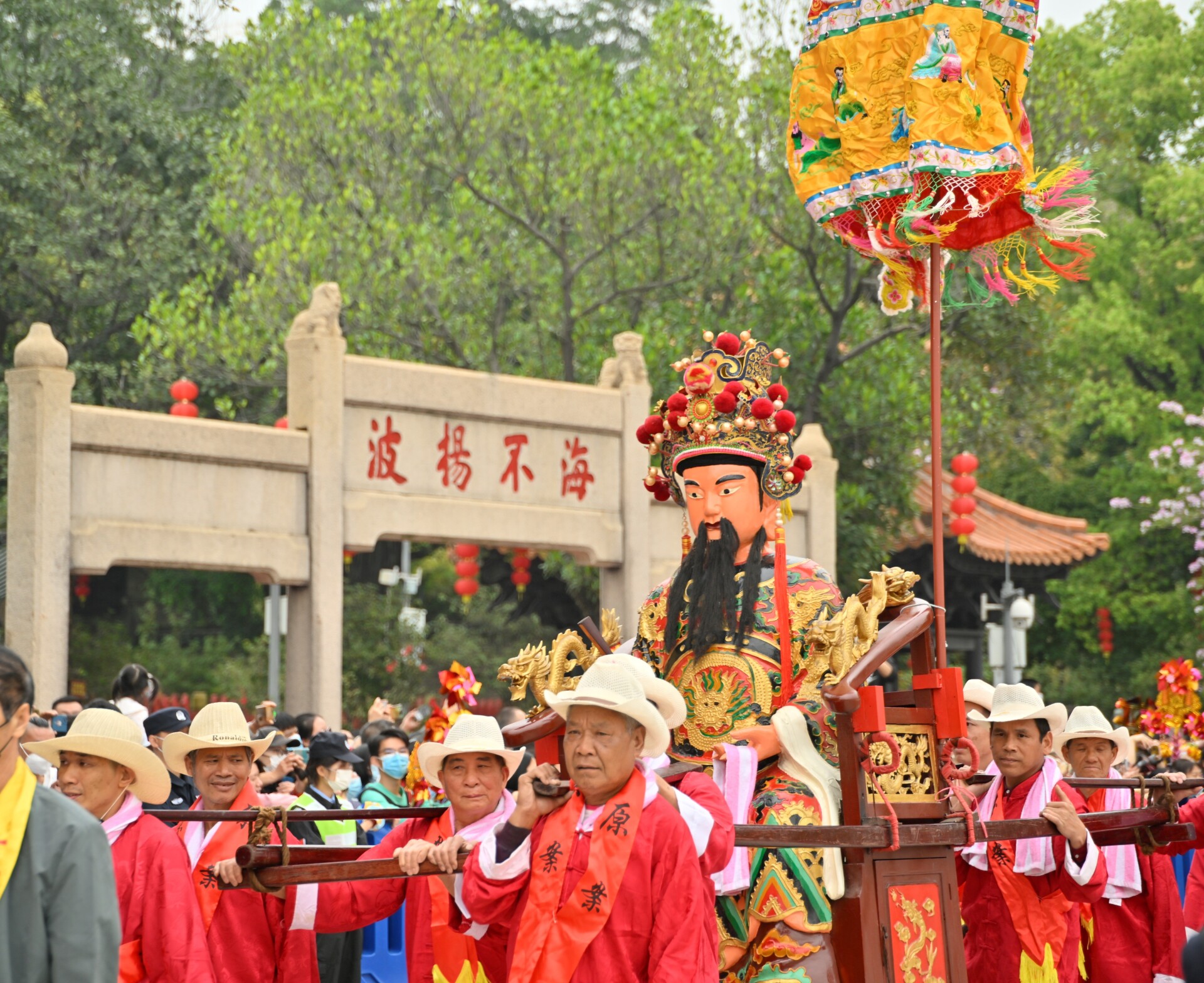
The Boluodan Temple Fair, which celebrates the birthday of the God of Sea, is held at the Nanhai Temple annually. (Photo provided to GDToday)
Excavation of the vital Dayu Mountains route
During Zhang Jiuling’s lifetime, Guangzhou was already a renowned port city, attracting merchants and traders from countries such as India, Persia, and Arabia.
Located in Nanxiong, Shaoguan, the Dayu Mountains, also known as Meiling, served as a shortcut from the Lingnan area to the Central Plains.
“The transportation of Lingnan and overseas goods to the interior, the trade of silk and ceramics to Lingnan and overseas regions, as well as the continuous flow of domestic and foreign officials and envoys, all highlighted the crucial importance of the Dayu Mountains route,” stated Li Qingxin.
However, the Dayu Mountains route had gone centuries without repair, with its rugged terrain and cliffs along the way unable to meet the demands of economic development. In 716, while returning home after completing his tenure, Zhang Jiuling witnessed travelers’ hardships due to the steep and narrow mountain paths. He immediately petitioned to construct a new Dayu Mountains route to improve north-south transportation.
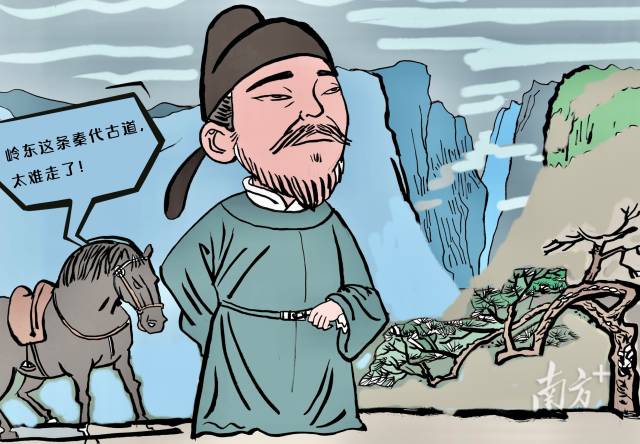
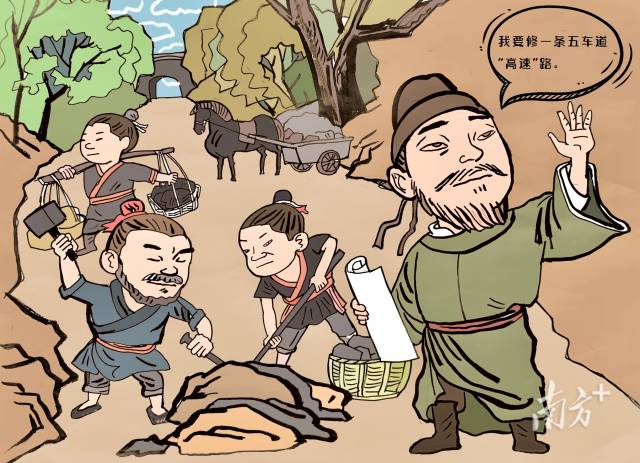
(Photo: Nanfang Daily)
From surveying to excavation, Zhang Jiuling devoted himself to the construction. Before long, the renewed Dayu Mountains route, also known as the Meiguan Ancient Road afterward, was successfully opened, soon becoming a bustling thoroughfare. Zhang Jiuling also established inns along the route, facilitating the transportation of merchants and goods.

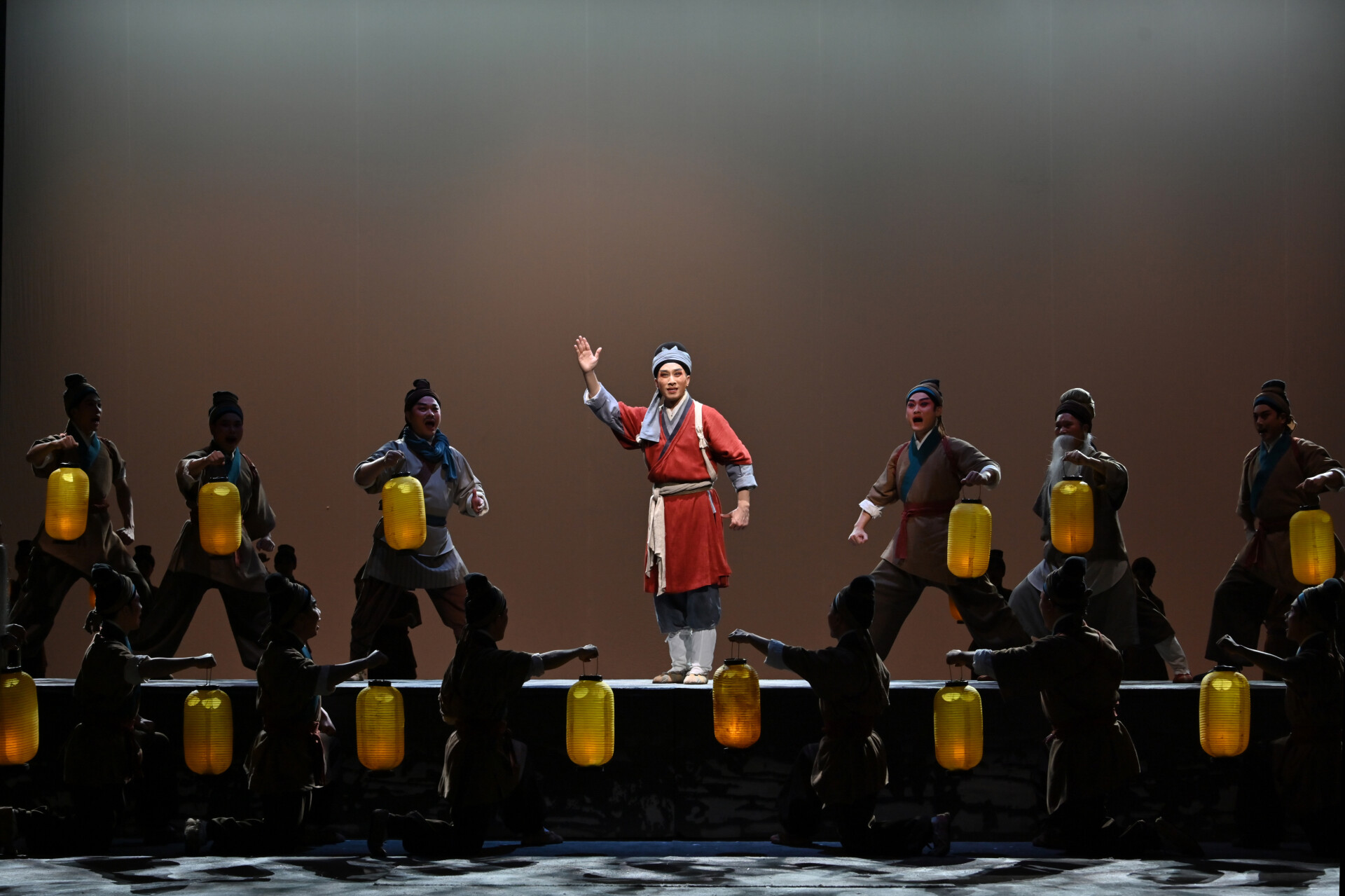
Stage photo of Cantonese opera Zhang Jiuling (Photo provided to GDToday)
“It can be said that the Dayu Mountains route became a crucial hub connecting the Jianghuai area (the plain between the Yangtze and Huai Rivers) to Lingnan and linking the maritime Silk Road,” remarked Li Qingxin.
Xiang Qun furthered that this project in Lingnan held a significance akin to the construction of the Beijing-Hangzhou Grand Canal in Jiangnan (the south of the lower reaches of the Yangtze River), laying a solid foundation for Lingnan’s integration with the whole country.
During the Song and Yuan dynasties, the Dayu Mountains – Zhujixiang Town route became one of the vital passageways for the southward migration of northern populations, playing an important role in the agricultural and economic development of the Pearl River Delta. Until the opening of the Guangzhou–Hankou Railway in the late Qing Dynasty, this ancient route remained the main thoroughfare for the circulation of goods between Lingnan and the interior.
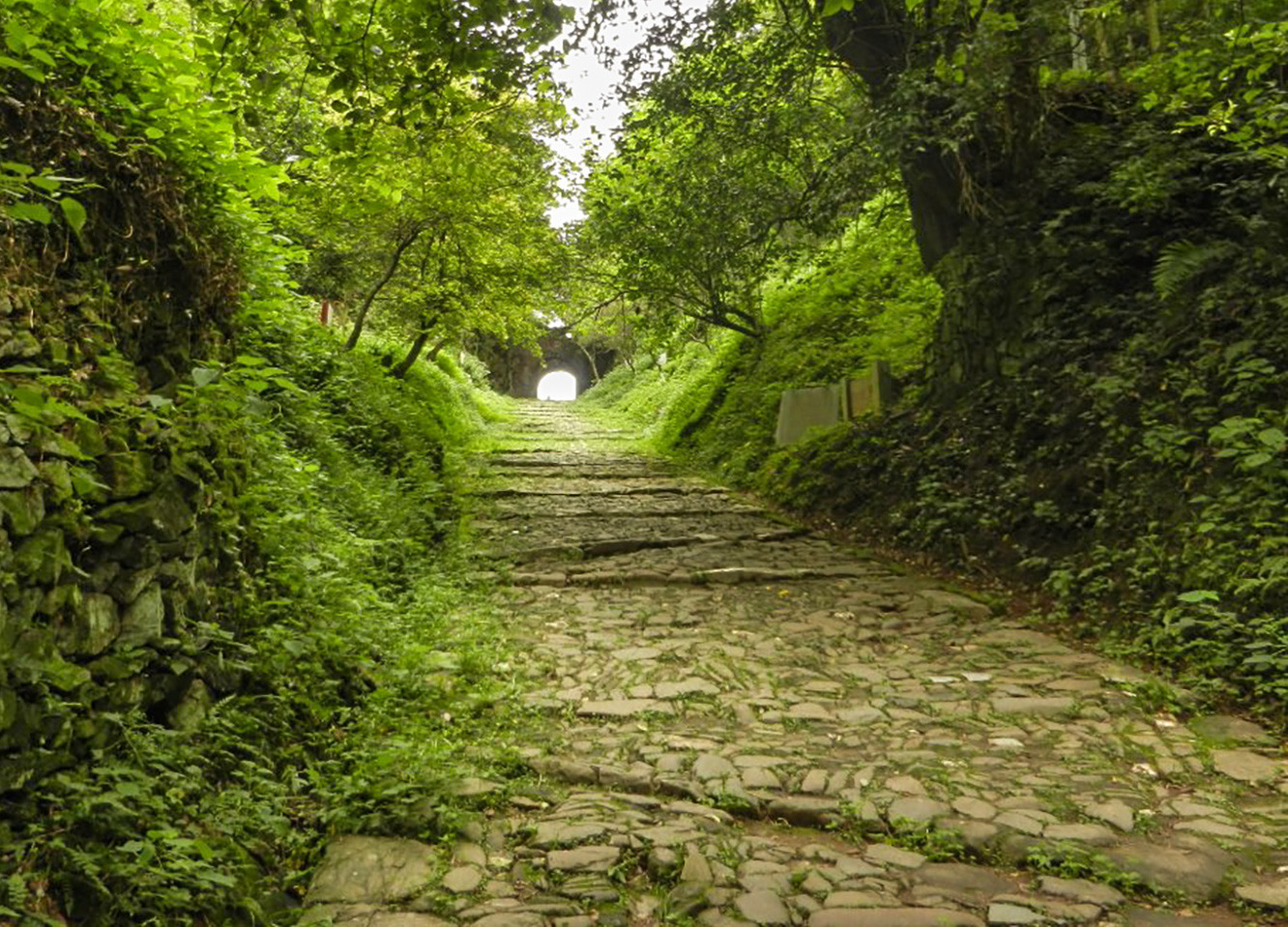 Dayu Mountains route (Photo: Nanfang Daily)
Dayu Mountains route (Photo: Nanfang Daily)
“Jiuling demeanor” reverberates far and wide
Before the Tang Dynasty, Lingnan was often perceived as a “wild and barbaric area”. Zhang Jiuling’s initiative in constructing the new Dayu Mountains route not only promoted Lingnan’s economy but also elevated its cultural status.
With the opening of the new Dayu Mountains route, many scholars and literati from the Central Plains began migrating southward, injecting vigor into Lingnan culture. Meanwhile, Zhang Jiuling’s upright and sincere style in the political circle earned him widespread admiration, with the “Jiuling demeanor” becoming a standard for ministerial appointments at the court.
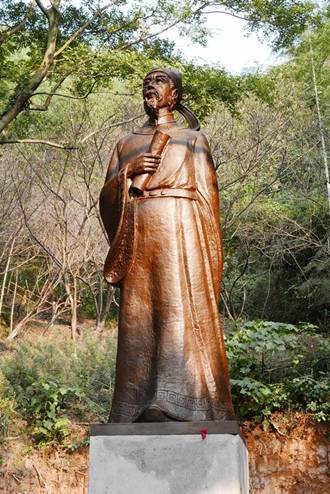
A bronze statue of Zhang Jiuling standing on the Dayu Mountains route (Photo: Nanfang Daily)
According to Professor Xiong Fei from the School of Literature at Shaoguan University, the “Jiuling demeanor” covers two key aspects: ability and virtue. Foresight, diligence in duties, conscientiousness, and adherence to principles are all cultural values included within it. “Through countless reinterpretations by literati, the ‘Jiuling demeanor’ has gradually evolved into the ideal essence of literati and scholars.”
“The ‘Jiuling demeanor’ also served as a model for subsequent Lingnan scholars,” said Chen Jiansen, former professor of the Chinese Department at South China Normal University.
He noted that from the Tang to Qing dynasties, a total of 82 individuals wrote 158 poems praising Zhang Jiuling, paying homage to the Qujiang Temple, with nearly 40 percent of them coming from Guangdong. Among these admirers were prominent Ming Dynasty scholars such as Chen Xianzhang, Zhan Ruoshui, and Qu Dajun.
Wen Ruqing starring in the Cantonese opera Zhang Jiuling also stated, “Zhang Jiuling’s contribution to the Meiguan Ancient Road embodies both the gentle warmth of compassion and the courage and determination to excavate the mountain.”
Furthermore, Chen Jiansen highlighted that with the promotion of cultural exchanges and the deepening study of Zhang Jiuling, his poetic masterpieces increasingly shine on the global stage.
On September 23, 2023, at the opening ceremony of the 19th Asian Games in Hangzhou, the audience recited Zhang Jiuling’s immortal verse, “Bosom friends make distance disappear.” In September 2019, when Thai Princess Maha Chakri Sirindhorn was awarded the Medal of Friendship, she also quoted this verse to express her wish to contribute to the friendship between the two countries.
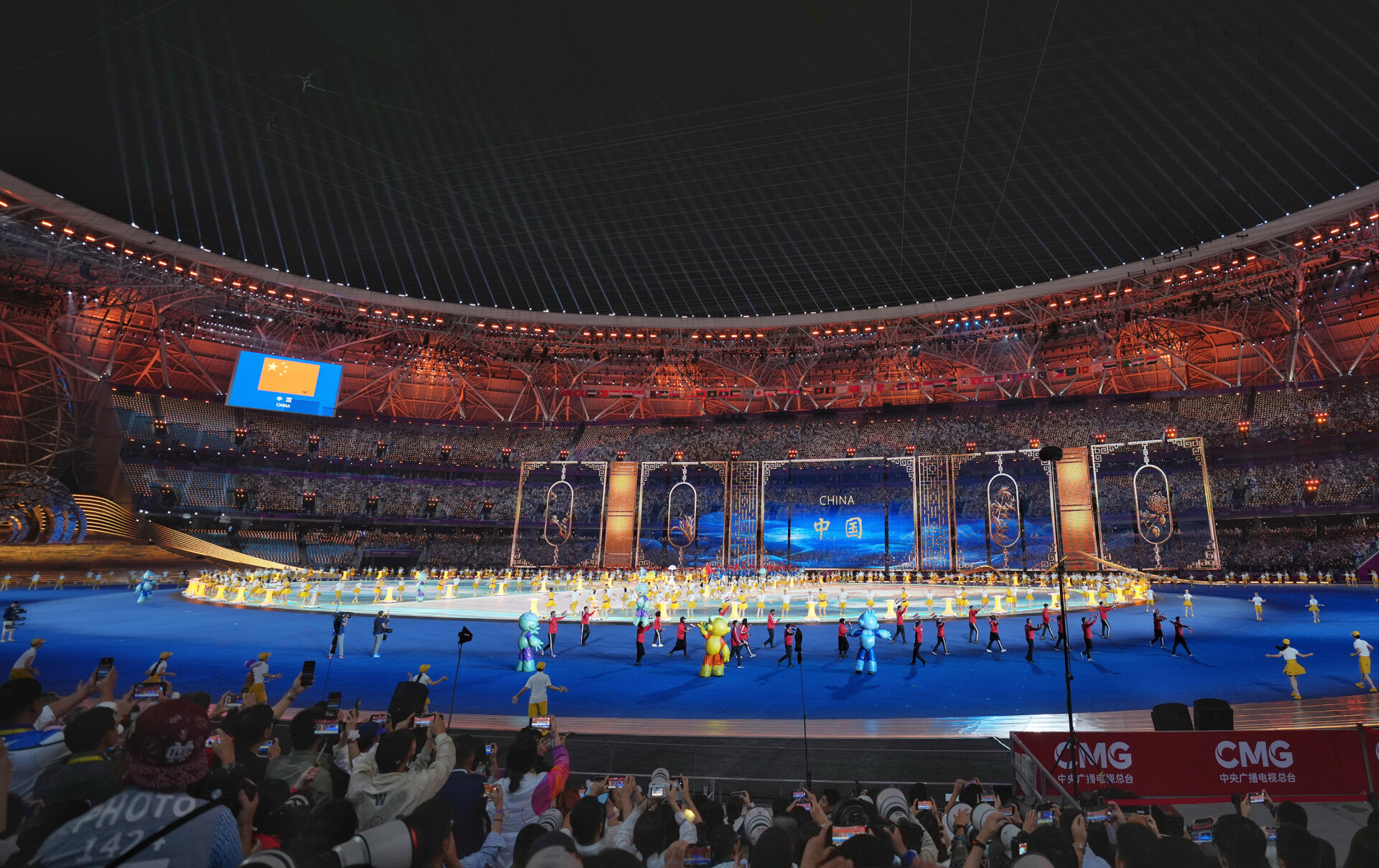
Opening ceremony of the 19th Asian Games in Hangzhou (Photo: Nanfang Daily)
“The poem conveys that true friends are not bound by distance; even separated by thousands of miles, we remain good neighbors,” shared Leng Song, chief scriptwriter for the opening and closing ceremonies of the 19th Asian Games in Hangzhou. “This poem mirrors the connection and unity between China and various Asian nations.”
“As a wellspring of Lingnan culture, inheriting the cultural heritage of the ‘Jiuling demeanor’ and promoting Zhang Jiuling’s innovative spirit hold significant value in fostering more artistic masterpieces imbued with the Lingnan characteristics and building up Guangdong’s cultural strength,” added Chen Jiansen.
Reporter | Holly
Editor | Steven, Monica, James

